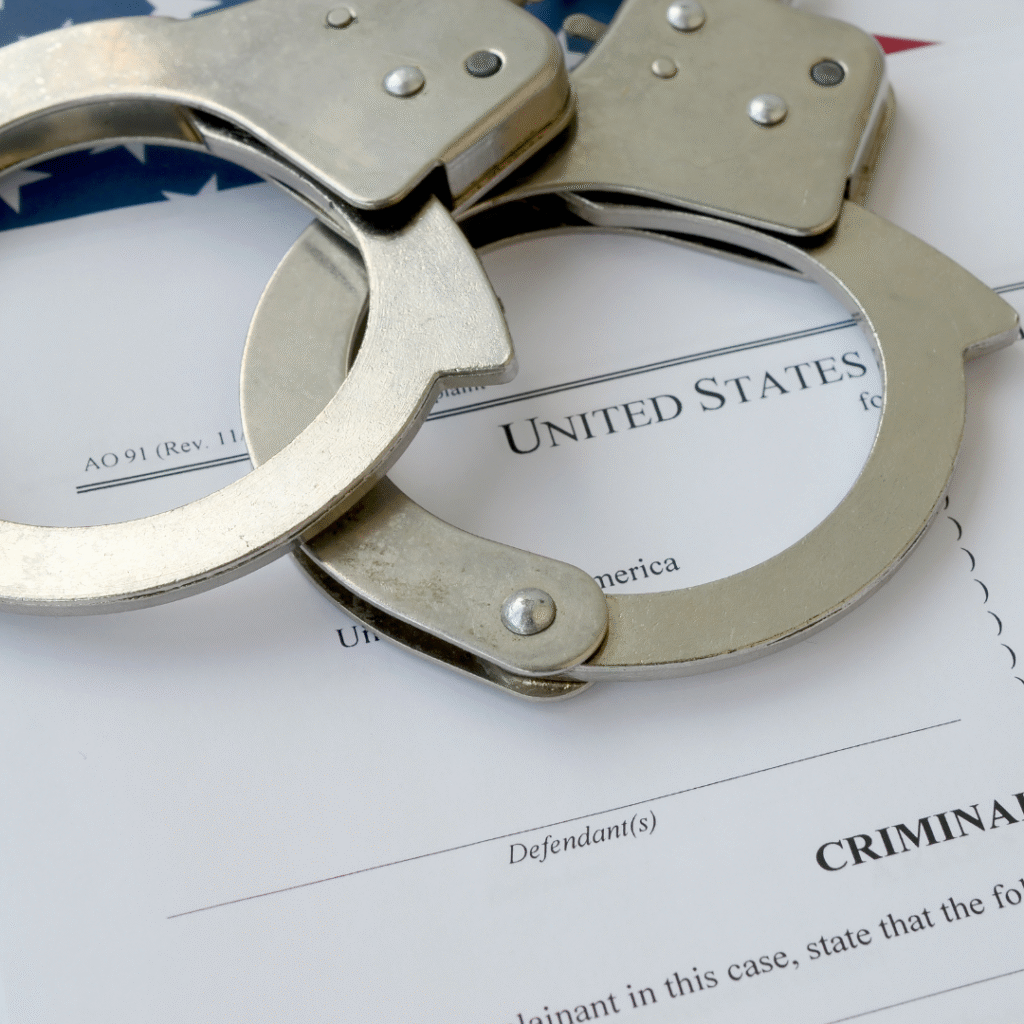How a Michigan Pharmacist and His Brother Pulled Off a $15 Million Health Care Fraud Scheme

December 1, 2025 | JacobiJournal.com — health care and wire fraud. The duo orchestrated a complex scheme targeting Medicare, Medicaid, and private insurers, resulting in over $15 million in losses. The case underscores the persistent threat of health care fraud in pharmacies and the growing scrutiny by federal authorities. What the Fraud Entailed Federal investigators revealed that from 2010 to 2019, Raad Kouza, 59, and his brother Ramis Kouza, 46, submitted fraudulent claims for prescription medications they never dispensed at their Michigan pharmacies. Key points include: As a result, the scheme cost federal and private insurers more than $15 million. Why the Court Issued Prison Sentences In November 2024, a federal jury convicted the brothers of conspiracy to commit health care fraud and wire fraud. At sentencing: Federal prosecutors emphasized that these sentences reflect the severity of deliberate fraud targeting government health programs. How Federal Agencies Investigated the Case The case was investigated by the FBI Detroit Field Office and the HHS Office of Inspector General (OIG). It was prosecuted by the Criminal Division’s Health Care Fraud Strike Force Program, which has charged thousands of defendants nationwide for defrauding federal health programs. The DOJ notes that ongoing oversight by CMS and HHS-OIG aims to prevent similar fraud schemes and hold providers accountable. For readers seeking official details on health care fraud enforcement, visit the DOJ Health Care Fraud Unit. Why This Case Matters Experts say the Kouza case highlights systemic vulnerabilities in pharmacy billing and inventory oversight. It also demonstrates that coordinated federal investigation and prosecution can recover losses and deter future fraudulent activity. Health care providers are encouraged to strengthen internal audits, compliance programs, and reporting mechanisms to reduce exposure to similar legal risks. FAQ: Understanding Health Care Fraud by Pharmacists How do pharmacists commit health care fraud? Fraud can occur through billing for medications not dispensed, overcharging insurers, or falsifying inventory records, as demonstrated in this case. What are the penalties for health care fraud? Convictions can include prison time, restitution, forfeiture, and professional license sanctions, depending on the scale of the scheme. How are pharmacy fraud cases investigated? Federal authorities such as the FBI and HHS-OIG conduct audits, review billing records, and analyze pharmacy operations to detect discrepancies. Can victims recover losses from health care fraud? Yes. Courts often order restitution to recover losses for government programs and insurers impacted by fraudulent schemes. Stay informed on health care fraud and insurance investigations — subscribe to JacobiJournal.com for expert reporting and timely updates. 🔎 Read More from JacobiJournal.com:
DOJ-HHS False Claims Act Working Group Intensifies Enforcement After $14.6B Takedown

August 11, 2025 | JacobiJournal.com – Following the historic $14.6 billion healthcare fraud takedown, federal agencies are doubling down on enforcement efforts under the reactivated False Claims Act Working Group, signaling an aggressive new era of oversight targeting fraudulent billing across the healthcare industry. The interagency team—led by the Department of Justice (DOJ) and the Department of Health and Human Services (HHS)—has not only revived the Working Group but is reportedly expanding its reach into newly flagged sectors, including behavioral health, teletherapy, and rural clinic billing models. New Investigations Already Underway According to DOJ insiders, a second wave of investigations is now underway, focusing on fraudulent claims involving telehealth services, durable medical equipment (DME), and unnecessary genetic testing. These schemes often prey on vulnerable populations and exploit regulatory gaps that emerged during the pandemic. While the initial healthcare fraud takedown charged 324 defendants—including medical professionals, clinic operators, and telehealth company executives—officials warn that this was just the “first phase” of a longer-term crackdown. “False Claims Act enforcement is now a frontline priority,” stated an official familiar with the task force. “We’re looking at everything from upcoded services to kickback arrangements involving marketing firms and call centers.” Enhanced FCA Enforcement Tools in Play Key to this effort is the strategic use of the False Claims Act (FCA), which allows the government—and whistleblowers—to bring civil actions against entities defrauding federal healthcare programs. By leveraging FCA provisions, the DOJ recovered more than $2.7 billion in healthcare fraud settlements in 2024 alone. As part of the intensified enforcement strategy, the DOJ-HHS Working Group is coordinating with: These collaborations are supported by enhanced data analytics tools that allow agents to identify anomalous billing patterns across Medicare, Medicaid, and TRICARE in near real-time. This integrated approach strengthens the government’s ability to execute large-scale healthcare fraud takedown operations, ensuring that fraudulent providers are identified and prosecuted efficiently. Industry Bracing for Fallout Legal analysts say the revived working group has put the industry on alert. “With this level of federal scrutiny, even compliant providers need to reassess their billing practices, referral relationships, and marketing vendors,” said a healthcare fraud defense attorney. “The government isn’t just targeting bad actors—they’re examining entire care delivery ecosystems.” In the wake of the takedown, several health systems and DME suppliers have launched internal audits, fearing that even minor regulatory violations could result in federal scrutiny or whistleblower claims. Compliance Tips for Providers Providers and healthcare businesses should take the following immediate actions to mitigate exposure: Experts caution that in today’s climate, ignorance of the law offers no defense. What’s Next? More arrests and settlements are expected in the coming months as the DOJ and HHS continue reviewing data and evidence collected during the healthcare fraud takedown operation. Industry stakeholders should anticipate ongoing False Claims Act enforcement waves well into 2026. For full case summaries and press releases, visit the DOJ’s official newsroom here. FAQs: DOJ False Claims Act Enforcement Update What is the False Claims Act Working Group? The DOJ-HHS False Claims Act Working Group is a task force dedicated to investigating and prosecuting healthcare fraud involving federal programs like Medicare and Medicaid. Why is FCA enforcement increasing now? Federal agencies are responding to widespread abuse of healthcare programs—especially telehealth and DME schemes—uncovered during the $14.6 billion fraud bust. The revived working group enables cross-agency coordination for faster and broader enforcement. How can healthcare providers avoid False Claims Act liability? Healthcare providers must ensure accurate billing, avoid illegal referral arrangements, and maintain documented compliance programs. Regular audits and staff training are essential. Subscribe to JacobiJournal.com to receive weekly enforcement updates, whistleblower case alerts, and FCA litigation insights tailored for legal, compliance, and health sector professionals. 🔎 Read More from JacobiJournal.com:
Fourth Circuit Upholds 17-Year Sentence in $12M Medicaid Fraud Case

July 31, 2025 | JacobiJournal.com – In a decisive legal ruling, the U.S. Court of Appeals for the Fourth Circuit upheld the 17-year prison sentence of Donald Booker, a North Carolina lab owner convicted of running a large-scale Medicaid fraud case. The court affirmed both the conviction and sentence tied to a scheme involving over $12 million in false Medicaid billing. Booker operated United Youth Care Services and United Diagnostic Laboratories, where he orchestrated the submission of fraudulent drug testing claims. The conspiracy involved kickbacks to treatment centers and housing facilities, including “Do It 4 The Hood” and “Legacy Housing,” in exchange for patient referrals. Scheme Involved Routine Drug Tests and Kickbacks According to court documents, Booker billed Medicaid for unnecessary, repetitive drug screens, often performed twice weekly on patients without proper medical evaluation. These patients were referred by community organizations that received direct illegal payments in return. The case resulted in convictions for illegal remuneration, money laundering, and conspiracy to defraud the U.S. government. Over $1.6 million in illegal kickbacks were proven at trial. The court rejected all arguments for reversal, stating the evidence overwhelmingly supported the jury’s findings. Broader Relevance for Medicaid Providers This Medicaid fraud case is part of a growing trend of federal enforcement targeting diagnostic labs, addiction treatment providers, and telehealth schemes. The Fourth Circuit’s ruling reinforces the DOJ’s approach of pursuing not only fraud but also financial arrangements that jeopardize patient care and program integrity. Providers nationwide are urged to evaluate referral relationships and billing protocols. This ruling serves as a strong compliance reminder in the face of mounting scrutiny. For a full legal opinion, see the Fourth Circuit’s document in the U.S. Court of Appeals for the Fourth Circuit (PDF). FAQ: About the Medicaid Fraud Case Why did the Fourth Circuit uphold the 17-year sentence in this Medicaid fraud case? The court found no error in the jury’s verdict or sentencing process, citing substantial evidence of illegal kickbacks, false claims, and intent to defraud Medicaid. What industries should take note of this ruling? Diagnostic laboratories, behavioral health providers, and referral networks—especially those serving Medicaid populations—should examine the ruling’s implications for compliance enforcement. What does this case mean for future Medicaid fraud investigations? The ruling signals continued judicial support for aggressive prosecution of healthcare fraud, including complex schemes involving community partnerships and repeated billing abuse. Stay ahead of the latest enforcement trends. Subscribe to JacobiJournal.com for weekly fraud, labor, and healthcare compliance updates impacting professionals nationwide. 🔎 Read More from JacobiJournal.com:
National Health Care Fraud Data Fusion Center Boosts DOJ-HHS Enforcement

July 25, 2025 | JacobiJournal.com – The National Health Care Fraud Data Fusion Center, jointly operated by the Department of Justice (DOJ) and Department of Health and Human Services (HHS), is rapidly transforming how federal authorities investigate and prosecute healthcare fraud. While first announced in late June, recent enforcement actions confirm the center’s pivotal role in accelerating the detection of fraudulent activity across Medicare, Medicaid, and telehealth platforms. How the Data Fusion Center Strengthens Fraud Enforcement The Data Fusion Center integrates real-time data analytics from multiple government agencies, enhancing the False Claims Act Working Group’s ability to identify anomalies, track financial flows, and connect disparate fraud schemes. This approach allows authorities to proactively flag high-risk providers and patterns before significant losses occur. The center’s work has already supported the 2025 National Health Care Fraud Takedown, which charged 324 defendants in schemes totaling $14.6 billion, including $1.17 billion in telehealth and genetic testing fraud. These figures represent the largest coordinated enforcement effort in healthcare fraud to date, demonstrating the fusion center’s growing impact. Impact on Telehealth Compliance and Analytics Telehealth providers, laboratories, and billing entities face heightened scrutiny as the fusion center applies advanced data analytics to monitor compliance. Organizations involved in telemedicine are particularly vulnerable, with the DOJ leveraging the center’s insights to trace billing irregularities linked to genetic testing scams and telehealth consults. This proactive enforcement model marks a shift from reactive investigations to continuous surveillance of healthcare transactions. As a result, companies in the healthcare sector are advised to strengthen their internal compliance protocols and regularly audit billing practices to avoid becoming targets of federal investigations. For more information on how healthcare fraud is tracked and prosecuted, visit the DOJ Health Care Fraud Unit resource page. What’s Next for the National Health Care Fraud Data Fusion Center Officials from both the DOJ and HHS suggest that the fusion center will continue to evolve, incorporating artificial intelligence and cross-border data sharing to combat increasingly sophisticated fraud schemes. Upcoming enforcement waves are expected to target providers exploiting risk adjustment models, prescription fraud, and unregulated telehealth services. With billions at stake, the center’s data-driven strategy is poised to redefine federal fraud enforcement, holding providers and corporations to higher standards of accountability. FAQ: National Health Care Fraud Data Fusion Center What is the National Health Care Fraud Data Fusion Center? The National Health Care Fraud Data Fusion Center is a joint initiative by the DOJ and HHS that uses real-time data analytics to detect and prevent healthcare fraud across Medicare, Medicaid, and telehealth services. How does the fusion center impact telehealth providers? Telehealth providers are under increased scrutiny as the fusion center analyzes billing data to identify fraudulent or non-compliant practices, especially in genetic testing and telehealth consultations. What were the results of the 2025 healthcare fraud takedown? The 2025 enforcement action charged 324 defendants with healthcare fraud schemes totaling $14.6 billion, with a significant portion linked to telehealth and genetic testing scams. Which schemes were uncovered by the fusion center? Authorities identified transnational networks billings exceeding $10.6 billion in DME fraud (Operation Gold Rush), telehealth/genetic testing fraud, opioid-related kickbacks, and false hospice claims. Where can I report suspected healthcare fraud? Reports of healthcare fraud can be submitted to the HHS Office of Inspector General (OIG). Stay informed on healthcare fraud enforcement and telehealth compliance developments. Subscribe to JacobiJournal.com for the latest insights on regulatory actions and industry risks. 🔎 Read More from JacobiJournal.com:
Telemedicine and Fraud: A Double-Edged Sword

June 11, 2025 | JacobiJournal.com – Telemedicine fraud is rising alongside the boom in virtual healthcare. As telemedicine reshapes healthcare access, it also opens new opportunities for deception. While virtual care brings convenience, bad actors exploit its digital nature to commit large-scale schemes. From fake billing to identity theft, the risks are mounting — and healthcare professionals must stay vigilant. The Rise of Telemedicine Fraud and Virtual Care Challenges Telemedicine surged during the pandemic, making healthcare more accessible for millions. However, this rapid adoption also left gaps that fraudsters eagerly filled, fueling a surge in telemedicine fraud. Scammers have exploited the virtual nature of care, taking advantage of lax verification processes and limited oversight in remote consultations. They used stolen identities, fake provider credentials, and inflated claims to siphon funds from government programs like Medicare and Medicaid. In many cases, telemedicine fraud involves billing for services never provided, fabricating patient encounters, or exaggerating the complexity of care delivered. This fraudulent activity not only drains public resources but also undermines trust in digital health services, creating barriers for legitimate telehealth providers and patients seeking convenient care options. Red Flags in Remote Care Fraudsters have grown more sophisticated. Some create fictitious clinics that never see patients but still bill for services. Others submit claims for expensive tests or procedures that never occurred. Additionally, providers have reported instances where patients were billed for telehealth visits they never scheduled. Enforcement Agencies Step In Thankfully, government watchdogs have significantly increased enforcement efforts to combat telemedicine fraud. Agencies like the Department of Justice (DOJ), the Office of Inspector General (OIG), and the Centers for Medicare & Medicaid Services (CMS) are working together to investigate and prosecute telehealth-related fraud schemes more aggressively. Recent enforcement actions include coordinated nationwide takedowns targeting fraudulent telemedicine providers who exploited Medicare and Medicaid. These operations often uncover complex networks involving fake clinics, unlicensed practitioners, and fraudulent billing practices. Despite these efforts, many telemedicine fraud schemes remain undetected due to the digital and often anonymous nature of virtual healthcare, costing taxpayers billions annually. Regulators are also investing in advanced data analytics and cross-agency collaborations to better identify suspicious patterns in telehealth billing. This enhanced scrutiny aims not only to catch current offenders but also to deter future fraud in the rapidly growing virtual healthcare sector. What Healthcare Organizations Can Do To stay ahead of fraud, healthcare organizations must implement robust compliance programs. Regular audits, identity verification, and secure digital platforms help reduce the risk. Moreover, training staff to recognize unusual billing or patient activity strengthens the first line of defense. A Call for Balanced Innovation Ultimately, telemedicine offers undeniable benefits—but it must evolve with fraud prevention in mind. As the industry grows, so must the systems that protect it. With proper safeguards, healthcare providers can embrace innovation while keeping fraud at bay. Learn more about healthcare fraud prevention from the HHS Office of Inspector General here. FAQ: Understanding Telemedicine Fraud What is telemedicine fraud and how can patients protect themselves? Telemedicine fraud occurs when scammers exploit virtual healthcare services to submit false claims, use stolen identities, or bill for services never provided. Patients can protect themselves by verifying their telehealth provider’s credentials, keeping track of services received, and monitoring their insurance statements for unauthorized charges. Reporting suspicious activity to healthcare authorities can also help prevent further fraud. Stay informed on telemedicine fraud trends and healthcare enforcement updates. Subscribe to JacobiJournal.com for weekly insights into fraud prevention and regulatory news. 🔎 Read More from JacobiJournal.com: